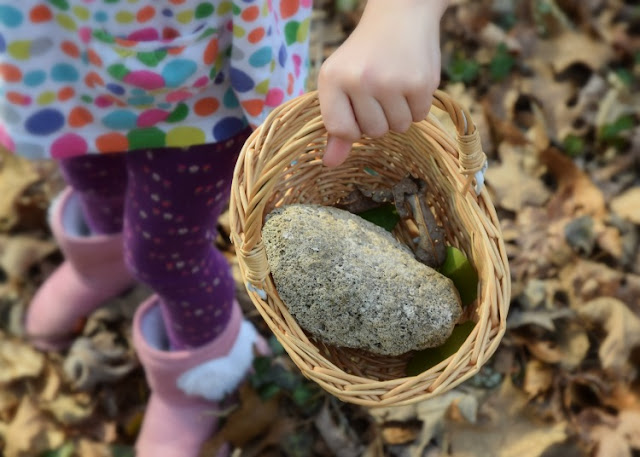I was on a walk with my very chatty 2-year-old in the stroller, and my newborn strapped on my chest. I was tired. I'd been talking with Lena for over 2 miles, and my too-much-talking meter was FULL. But the questions kept coming. "What's that, Mommy? What are we having for lunch? Why? Why are some of those flowers purple and some yellow? Why was that lady wearing a skirt? Do you like my pigtails? Why are my nipples so small? How far have we walked? Did you bring me a snack? What did that lady just say? How come she has three kids with her? Why does she think I'm cute?" And on, and on, and on. I had patiently answered every single one.
We got in the car to go home and I was looking forward to the peace and quiet of the girls taking a short car nap on the way home.
Instead I got, "What was that bump, Mommy?"
"Just a bump, baby."
"But why was there a bump?"
"Just because."
"But, Mommy, why was the road so bumpy?"
"IT. JUST. WAS. CAN. YOU. PLEASE. BE. QUIET. FOR. ONE. MINUTE."
She obliged - silent and sad in the back seat. As we drove home I felt guilty for being so short with her. My sweet little girl just wanted to know all about the world around her. I thought about how her father and I are basically her ONLY sources of information. And I thought about how sad it would be if the questions really stopped coming- not for a short car ride home, but if I somehow managed to snuff out her curiosity for good.
But I also thought about how much she would learn if I answered everything she asked. If I filled her with information, letting her know that we'd find the answer to everything she wanted to know and making sure she knew her questions were important.
THAT was the kind of child I wanted to raise, and the kind of mother I wanted to be.
Since that car ride over 3 years ago, I've made an enormous effort to answer the questions. Does it always work? No, but I'm going to do everything I can to nurture my daughters' curiosity.
Here are 10 Ways To Raise Curious Kids.
This
post may contain Amazon or other affiliate links. If you use these
links, I may earn a commission at no additional cost to you. Click here for my full privacy and disclosure policies.
Answer Their Questions
I know that the questions can be exhausting, but the most important thing you can do to raise curious children is to answer their questions. Answer in the most grown-up way that they can possibly understand. Use language that they know, throw in a few big words that they can figure out from context, and explain whatever it is they're wondering about.
If you don't answer, they'll stop asking. If you DO answer, they'll know a whole lot about the world, AND they'll learn that being curious about something is a guaranteed way to get some quality mom or dad conversation.
DON'T Answer Their Questions
Yeah, yeah, I just told you to answer your children's questions. Eventually, though, you're not going to be there to answer all their questions and they need to know how to find the answers or explore further on their own!
Once your children are old enough, take some time to show them how they can answer their own questions. A child who can read can be taught how to find an appropriate reference book and look through the table of contents or index. Children with tablets or their own computers should know how to search the internet (safely) for accurate information.
Model Curious Behavior
Let your children see you being curious. This includes reading, but it also includes answering questions when they come up. If my husband and I have a question about something during dinner, we make a big production of finding out the answer. We may find a book on our shelves to discover the answer or just whip out a phone and do a quick web search. We try to make sure our children see that curious people have questions, and then do what they can to learn more about a topic.
Stock The Shelves
There are LOADS of great children's nonfiction books that can encourage your children to be curious about topics they may not have even dreamed of! Keep plenty on your bookshelves, get new ones from the library, and be sure to leave some out on the coffee table. Some of our favorites are:
Also stock your shelves with biographies and stories about famous curious people like scientists, explorers, and inventors.
Ask The Experts
We have a relatively new rule in our house- whenever we meet or encounter an expert about something, we each ask them a question. So far we've talked to a dog trainers, a librarian, a locksmith, a gardener, and our hairdresser. I encourage the girls to think of something about the person or their job that they'd like to know, and then we all learn a whole lot as we talk! As homeschoolers, I especially love that this little habit gives my daughters more "real world" experience and practice talking to all different kinds of people.
Provide Plenty of STEM Activities
There's a reason why STEM (science, technology, engineering, and math) activities are so popular these days! Activities in these disciplines encourage children to be curious problem solvers. I especially love The Curious Kids' Science Book because there are very few explicit instructions for the activities- parents AND children need to think through the projects for themselves to figure out how to complete them.
Praise Curiosity
After a particularly good question, make sure to let your children know what a good question they've asked! Kids need to KNOW that curiosity is a good trait and that it is something we value and that will help them learn and grow. Tell them how much you love their curiosity! You can also say things like," I love how you explored more about that," or "See how much we learned from digging deeper!"
Ask Them For Questions
Sometimes a child may not even realize that they're curious about something unless you give them explicit permission to ask some questions! My daughters' violin teacher always ends each lesson with, "What questions do you have for me?" and I LOVE that because they come up with some doozies. They've learned all about different parts of her violin, her jewelry, her favorite songs to play and to listen to, and loads more. Sometimes children need to be trained to think about what kinds of things they may like to know more about!
Let Them Be Bored
If you kids' time is structured from sunup to sundown, they're never have the chance to let their minds wander. Boredom breeds creativity and curiosity. When your kids want to make a fort, they have to figure out how many books it takes to hold the blankets in place. As they loll around in the grass outside, they'll start to wonder about the clouds, leaves, and little critters. The brain needs room to breathe!
Turn Off Screens
Kids can learn things from television and tablets, but it's passive consumption of information. Curiosity is an active trait, so the more time we allow our children's brains to be active, the better! Take your kids outside to play, give them a crate of wooden blocks, or visit the library for some fresh reading material instead.
You May Also Be Interested In
Shells And Mirrors On The Discovery Table
From Other Great Bloggers
Keep Them Passionately Curious from Not Just Cute
How To Keep Kids Curious About Science from Mama Smiles
Are You Raising Curious Kids? from Edventures With Kids
Simply Curious from Plain Vanilla Mom
Are You Raising Curious Kids? from Edventures With Kids
Simply Curious from Plain Vanilla Mom






















